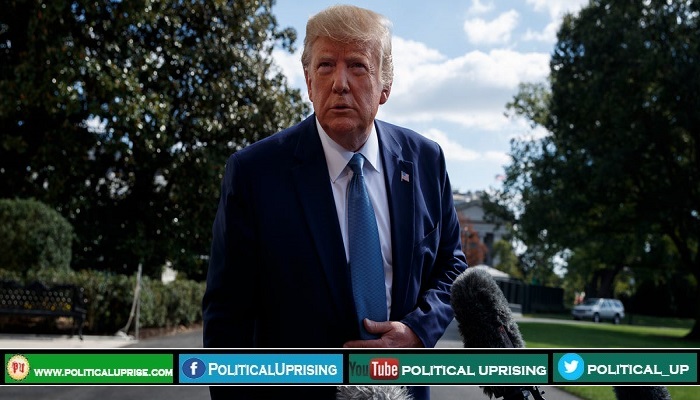UK wants a post-Brexit trade deal with the United States but is insisting on imposing a digital service tax on the revenue of companies.
The idea of a ‘tech tax’ on US-based transnationals has previously sparked anger in Washington.
The United Kingdom wants a post-Brexit trade deal with the United States but is insisting on imposing a digital service tax on the revenue of companies such as Google, Facebook and Amazon, business secretary Andrea Leadsom said on Thursday.
“The United States and the United Kingdom are committed to entering into a trade deal with each other and we have a very strong relationship that goes back centuries so some of the disagreements that we might have over particular issues don’t in any way damage the excellent and strong and deep relationship between the US and the UK,” Leadsom said.
Read More: Farmers protesters blocked Berlin roads
“There are always tough negotiations and tough talk but I think where the tech tax is concerned it’s absolutely vital that these huge multinationals who are making incredible amounts of income and profit should be taxed and what we want to do is to work internationally with the rest of the world to cover with a proper regime that ensures that they’re paying their fair share.”
Under the British plan, tech companies, which generate at least 500 million pounds ($657m) a year in global revenue, will pay a levy of 2 percent of the money they make from UK users from April 2020 onwards.
Plans to tax US-based transnational social media companies in other countries where they operate have previously sparked fury in Washington.
Read More: Ukraine launches probe into alleged spying on ex-US ambassador
After France announced its “tech tax” plans in July 2019, President Donald Trump said the US would hit France with a “substantial reciprocal action”.
“If anybody taxes them, it should be their home Country, the USA. We will announce a substantial reciprocal action on Macron’s foolishness shortly,” Trump tweeted, referring to French President Emmanuel Macron. “I’ve always said American wine is better than French wine!”
UK secretary for international trade, Liz Truss, said on Thursday that UK tax policy was a matter for the UK treasury, not the US or the European Union.
French finance minister Bruno Le Maire also said on Thursday that an agreement had been reached which would allow discussions on a digital tax scheme at next week’s OECD meeting.
Leadsom on Thursday also said a decision would soon be taken as to what role China’s Huawei will have in Britain’s 5G telecommunications network. She did, however, point out that the government had few options.
“Well, there other providers, but they are limited. Ideally, there would be more providers of infrastructure similar to the work that Huawei does, but the UK is looking very carefully at this issue and we will be making a final decision soon,” Leadsom said.
“It is an ongoing process and there are all sorts of factors to take into consideration, like the availability of other providers, like the work that Huawei have already done in the United Kingdom, so these discussions are ongoing,” she said.
Read More: Brexit party leader ask for change in Brexit deal
The possibility of the UK using Huawei to build next-generation infrastructure has raised alarm bells in Washington, where officials see the Chinese tech giant as a cybersecurity threat, potentially allowing Beijing a secret backdoor into surveilling global communications.
British officials have formally recommended granting Huawei a limited role in the UK’s future 5G network, resisting US calls for a complete ban, two people with knowledge of the matter said.
The recommendation, made at a meeting of officials from senior government departments and security agencies on Wednesday, was revealed on Thursday, in advance of next week’s meeting of Britain’s National Security Council which will decide how to deploy Huawei equipment, the sources said.
UK wants US post-Brexit trade deal and a tech tax.



